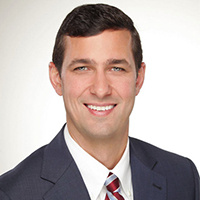Pauline DUI-DWI Lawyer, South Carolina
Sponsored Law Firm
-
 x
x

Click For More Info:
-
Law Offices Of David A. Braghirol
126 East Main Street Duncan, SC 29334» view mapCriminal Law Proudly Serving South Carolina
Call today to talk to an experienced criminal defense lawyer.
800-296-8980
Joseph Patrick Anderson
✓ VERIFIEDDUI-DWI, Family Law, Accident & Injury, Criminal
Patrick was born and raised in Spartanburg, South Carolina, and is a partner at the law firm of Anderson & Moore. He received his Bachelor of Arts in ... (more)
David Arthur Braghirol
✓ VERIFIEDCriminal, Divorce & Family Law, Traffic, DUI-DWI
David Braghirol is a practicing attorney in the state of South Carolina. He graduated from University of South Carolina with his J.D. in 1997. He curr... (more)
D. Graham Buckner
✓ VERIFIEDCriminal, DUI-DWI, Workers' Compensation, Social Security
Attorney Graham Buckner’s practice is primarily focused on helping injured workers as well as criminal defense. If you have been injured at work, Gr... (more)
Andrew J. Johnston
DUI-DWI, Criminal, Car Accident, Accident & Injury, Car Accident
Status: In Good Standing
Donald B. Wildman
Commercial Real Estate, Defect and Lemon Law, Child Custody, DUI-DWI
Status: In Good Standing
James Churchill Donaldson Thomas
White Collar Crime, Felony, DUI-DWI, Criminal
Status: In Good Standing Licensed: 12 Years
 AboutLaw Offices Of David Braghirol
AboutLaw Offices Of David Braghirol Practice AreasSpecializations
Practice AreasSpecializations




